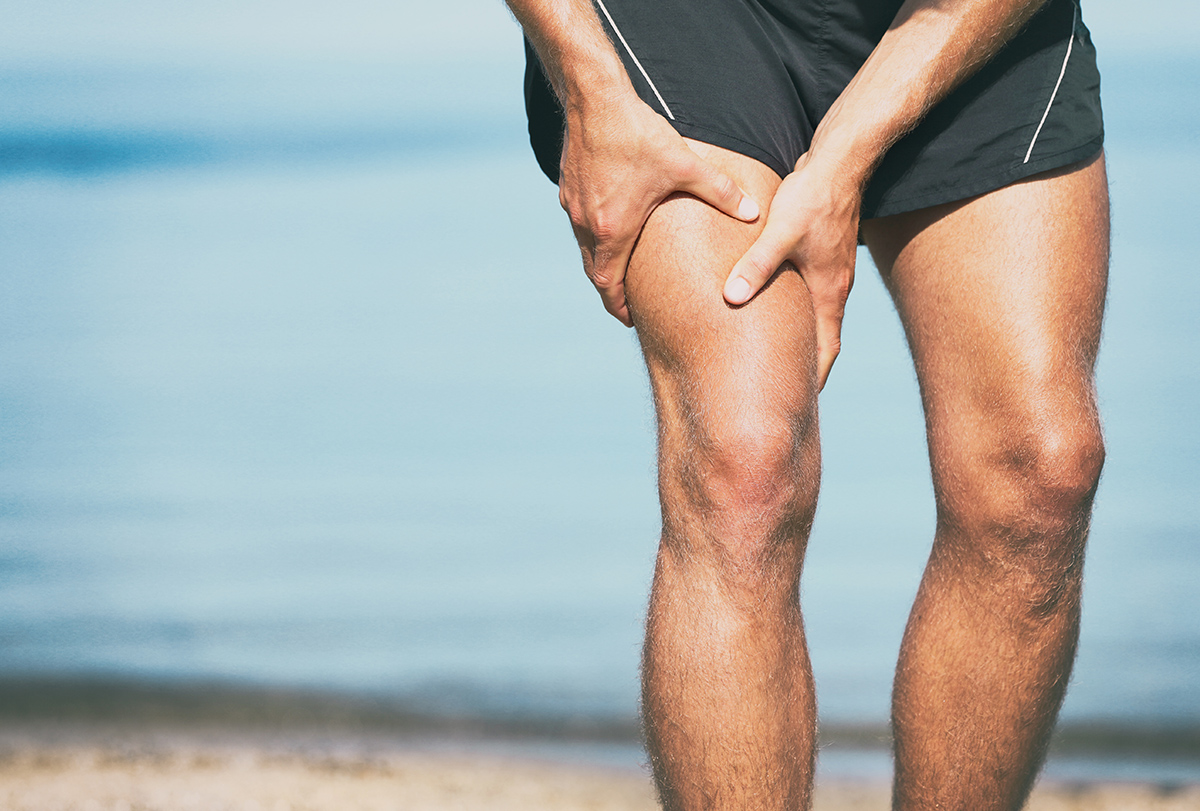In this article:
If you have experienced muscle cramps before, you know how agonizingly painful they can be. Cramps can happen at any time and are often very unpredictable.

While a number of factors can contribute to muscle cramps, such as dehydration or electrolyte imbalance, they can also be caused by simple things such as sitting in the same position for too long.
Children between the ages of 3 and 12 years frequently have leg discomfort and cramps, typically at night. Most of the time, there is no discomfort throughout the day and kids are still active, but if there is persistent fever or chills, you should exercise caution. (1)
Fortunately, there are some home remedies that can help ease the pain. This article will explore some of the most effective home remedies for muscle cramps – from stretching to massage to hydration.
So if you’re dealing with cramps, read on for some tips on how to get relief.
Causes and Symptoms of Muscle Cramps
Long-term physical exertion or labor, especially in warm weather, can cause muscle cramps. Dehydration, electrolyte imbalances, physical exhaustion, and medical disorders including diabetes and peripheral artery disease are just a few of the causes.
Many medications and medical conditions can also cause muscle cramping. (2)
Leg muscles, particularly the calf, are where most cramps occur. Along with the sudden, severe pain, you might also detect or feel a hard lump of muscle tissue. (2)
While the discomfort and soreness may linger for several hours following a cramp, it typically lasts only a few seconds (but it can last up to several minutes).
Cramps may also occur alongside metabolic disturbances, such as:
- Hypoglycemia (low blood sugar)
- Hypocalcemia (low levels of calcium)
- Hypomagnesemia (low levels of magnesium)
- Hypokalemia (low levels of potassium) and hyperkalemia (elevated levels of potassium)
- Hyponatremia (low sodium levels) (3)
The majority of the time, muscle cramps go away on their own and rarely get severe enough to need medical attention.
Medical Investigation, Diagnosis, and Treatment for Muscle Cramps

Investigations for muscle cramps
The first step in treating muscle cramps is to determine the cause of the cramps. To diagnose the cause of muscle cramps, a doctor may perform a physical exam and ask about the patient’s medical history.
Your doctor may ask the following questions:
- When did you start getting cramps?
- How often and how painful are your cramps?
- Does any activity — from light to vigorous exercise — usually occur before your cramps?
- Do you ever have cramps when you’re sleeping?
- Do stretches help you with cramps?
- Do you also experience additional symptoms such as numbness or muscle weakness?
- After working out, have you noticed any changes in your urine?
Your doctor might suggest a drug to calm your muscles if you get frequent cramps that keep you up at night. (4)(5)
They may also order blood tests to check for any underlying medical conditions, such as kidney or thyroid problems, that may be causing the cramps. (6) These tests include:
It also helps to distinguish between different causes of muscle cramps based on your age and the muscles that frequently experience them. Doctors may also look for peripheral pulses and capillary refills in older patients or in cases where peripheral artery disease is suspected.
Treatment for muscle cramps
Treatment for muscle cramps depends on the underlying basis of the cramps. Some common treatments advised by doctors are:
- Stretching and massage – Gentle stretching and massage can help relieve muscle cramps. Stretching helps to loosen the muscle fibers, while massage stimulates blood flow to the affected area.
- Electrolyte replacement – Electrolytes are essential minerals such as sodium, potassium, and magnesium that help in regulating muscle function. An electrolyte imbalance can cause muscle cramps, so replacing lost electrolytes through diet or supplements can help prevent cramps from occurring. (3)
- Medications – A doctor may occasionally recommend drugs to treat muscular cramps. These may include muscle relaxants, pain relievers, and anti-inflammatory drugs. (2)
- Maintaining a healthy diet, getting enough sleep, and getting a handle on stress can also help prevent cramps. (2)
Final Word
Most muscle cramps are due to heat, dehydration, stress, or overexertion. Muscle cramps can be painful and disruptive, but with the right diagnosis and treatment, they can often be managed effectively.
If you experience frequent or severe muscle cramps, it’s important to see a doctor to determine the underlying cause and develop an appropriate treatment plan.
 Continue Reading7 Natural Ways to Manage Muscle Cramps at Home
Continue Reading7 Natural Ways to Manage Muscle Cramps at Home
- Was this article helpful?
- YES, THANKS!NOT REALLY


